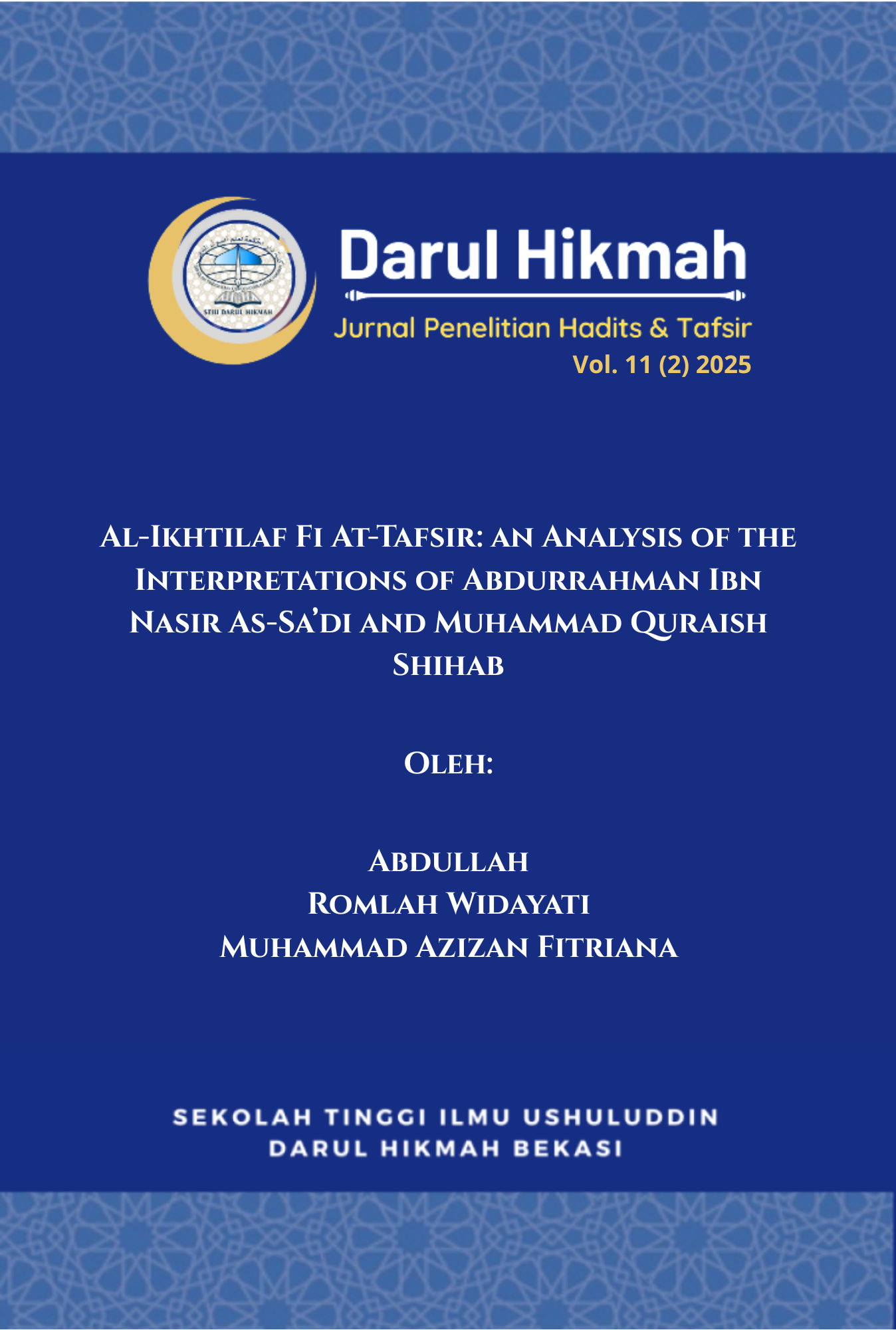Al-Ikhtilaf Fi At-Tafsir: An Analysis of the Interpretations of Abdurrahman Ibn Nasir As-Sa’di and Muhammad Quraish Shihab
DOI:
https://doi.org/10.61086/jstiudh.v11i2.93Keywords:
Al-Ikhtilaf fi at-Tafsir, As-Sa’di, Quraish ShihabAbstract
The interpretation of the Qur'an is a crucial element in understanding the meaning and message of its verses. However, in practice, differences in interpretation, or al-ikhtilaf fi at-tafsir, often occur among both early (salaf) and later (khalaf) scholars, and have existed even since the time of the Prophet Muhammad (peace be upon him). Al-ikhtilaf fi at-tafsir is divided into two main types: Disagreement that is reducible to a single meaning and Disagreement that is based on multiple meanings, each with its own forms and characteristics. This study uses a library research method and is qualitative in nature. The author found that As-Sa'di's method in interpreting verses containing al-ikhtilaf involves three approaches: not explaining the existence of a difference and choosing the opinion he deems correct; mentioning the difference without choosing one of the opinions; and explaining the difference, then selecting the opinion he deems correct. Meanwhile, Quraish Shihab uses two approaches: explaining the existence of a difference without choosing one of the opinions, and selecting the opinion he deems correct.













